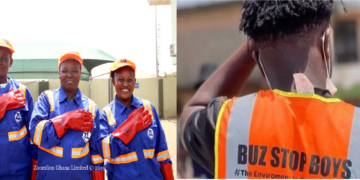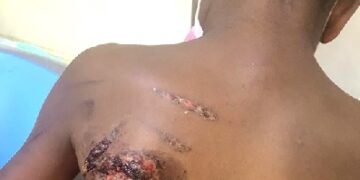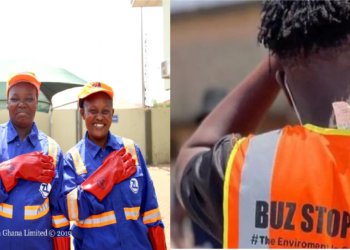The Karaga District Assembly in collaboration with the Resiliency in Northern Ghana (RING) project has presented a total of 370 small ruminants and 120 Salt Lick to 120 targeted vulnerable households in two communities in the Karaga District of the Northern Region.
The communities are; Karaga and Nangunkpang.
The distribution of the small ruminants, which falls under the livelihood and agriculture component of the RING project, is to ensure increased access and consumption of diverse quality food among target households, especially among women and children under five.
Presenting the animals to the beneficiary women in Karaga Community over the weekend, the Karaga District Chief Executive, Mr. Imoro Yakubu, said improving the livelihoods of the people across the districts in the Northern Region was the surest antidote to reducing poverty in northern Ghana.
Mr. Imoro said the Karaga District will work assiduously to accelerate the pace of activities implementation of interventions such as small ruminants rearing, dry season leafy green vegetable cultivation and soybean production among others in order to empower the vulnerable women to produce enough food for household consumption.
He said the interventions would also enable the women to generate incomes to start up small businesses, purchase nutritious food to feed their families, pay school fees of their children as well empower them to access quality health care.
“Lifting the people out of poverty, especially our women, is of priority to the Government of Ghana,” Mr. Yakubu added.
The Government of Ghana, Mr. Yakubu explained would continue to partner with its Development Partners and donors like the USAID to implement interventions like the Resiliency in Northern Ghana project to alleviate the plight of the people in the region.
According to the Karaga District Chief Executive, the USAID RING project has brought respite to the people of Karaga district in the areas of nutrition improvement through the production and consumption of Orange Fleshed Sweet Potatoes and leafy green vegetables.
He caution the small ruminant beneficiaries against the sale of the animals and urged them to take good care of the animals in order for them to multiply for them to sell or slaughter to improve household nutrition and incomes.
Mr. Yakubu assured the beneficiary communities and households that selected Community Livestock Workers have been sensitized and trained on disease recognition, medication and vaccines administration to provide support to them, adding that beneficiary households have also received training in the areas of disease recognition, prevention and control, farm sanitation and hygiene practices, improved housing and maintenance and supplementary feeding.
“The animals are yours forever and no one will ever come to take them back,” Mr. Yakubu stressed, while urging the beneficiaries, who are women to take good care of the animals by feeding animals regularly and observing good sanitary practices in their pens to make the investment of the development partners worthwhile.
Mr. Yakubu thanked the United States Agency for International Development (USAID) and the people of America for the RING project and assured that the district would put their shoulders to the wheel by effectively targeting the more vulnerable people for assistance in order to alleviate the plight of the people.
A RING Livelihoods Officer, Mr. Gabriel Timbillah called husbands and beneficiary household members to support the women to take good care of the animals since the benefit is for the entire household.
A beneficiary of the small ruminants at Karaga Community, Yakubu Fuseina expressed gratitude to USAID and the Karaga District Assembly for providing her a source of livelihood and promised to take good care of the animals in order for them to multiply to generate income from it to improve the nutrition and income status of her household.
RING is a five years USAID funded project.
The project interventions are implemented through a collaborative approach between Global Communities (GC) and 17 District Assemblies (DAs) in the Northern Region and the Northern Regional Coordinating Council (NRCC) with GC main responsibility being provision of technical support latter to improve the livelihood and nutritional status of vulnerable households in targeted communities in the 17 District of the region.
















